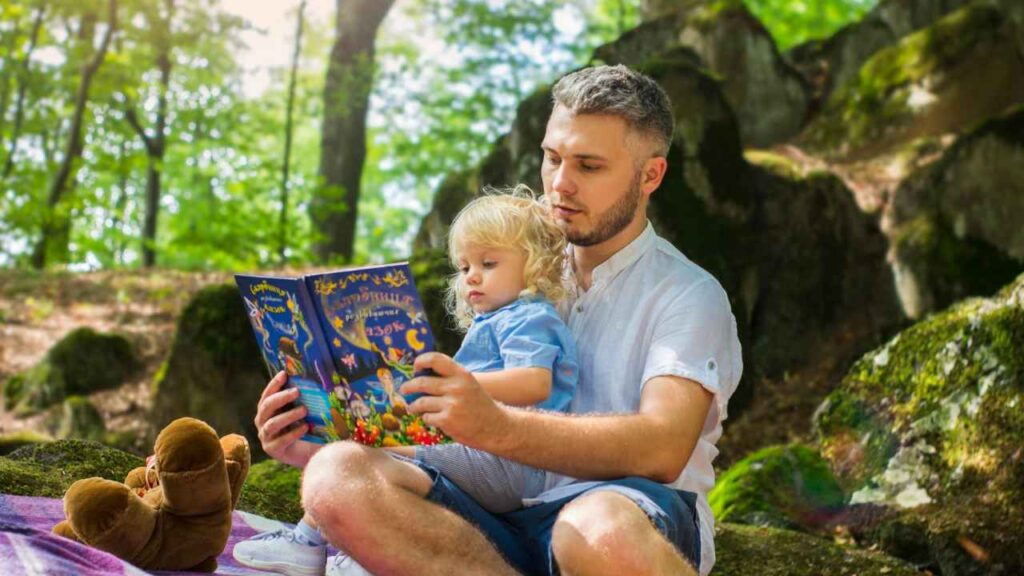Supporting a child’s development is one of the most rewarding aspects of parenting. During the formative years, children thrive on activities that engage their minds and bodies, promoting cognitive, emotional, and social growth. But what activities can help a child’s development in the best way possible? The answer lies in a combination of structured and unstructured activities tailored to their needs.
In this post, we’ll explore seven engaging activities that enhance children’s development naturally. From boosting brainpower to nurturing social skills, these practical ideas will inspire you to create a supportive and enriching environment for your little one.
What Activities Can Help a Child’s Development?

1. Storytelling and Reading Together
Storytelling and reading are powerful tools for children’s cognitive and language development. Engaging in these activities fosters creativity, enhances vocabulary, and nurtures emotional connections between parents and children.
- Choose age-appropriate books with colorful illustrations.
- Encourage your child to ask questions and predict story outcomes.
- Create a daily reading routine, such as bedtime stories.
These activities for children’s brain development also improve their attention span and listening skills.
2. Outdoor Exploration and Nature Walks
Spending time outdoors allows children to connect with nature while improving physical health and curiosity. Nature walks are an excellent way to encourage sensory exploration and develop motor skills.
- Take your child to parks, gardens, or hiking trails.
- Engage them in activities like leaf collecting or identifying birds.
- Allow unstructured playtime to fuel creativity.
Fun ways to help kids grow and learn outdoors also foster a love for the environment.
3. Arts and Crafts
Creative activities like drawing, painting, or making crafts stimulate fine motor skills and self-expression. These hands-on projects encourage problem-solving and boost a child’s confidence.
- Provide simple materials like paper, crayons, and glue.
- Set up a dedicated space for creative activities.
- Praise their efforts rather than focusing on the final product.
Arts and crafts are among the best activities for children’s social development when done in groups.
4. Role-Playing and Pretend Play
Role-playing helps children develop imagination, empathy, and social skills. By pretending to be doctors, chefs, or teachers, kids learn about different roles in society and practice interpersonal communication.
- Provide costumes or props to inspire their creativity.
- Join them in role-playing to deepen the experience.
- Encourage scenarios that involve teamwork and problem-solving.
Pretend play also enhances how to improve a child’s learning skills through interactive storytelling.
5. Music and Movement
Music and movement activities, like singing or dancing, stimulate both physical and emotional development. They improve coordination, rhythm, and self-expression while fostering a love for the arts.
- Play different genres of music and encourage free dancing.
- Teach simple songs or nursery rhymes.
- Use instruments like tambourines or maracas to explore sounds.
These fun ways to help kids grow and learn also support emotional regulation.
6. Building and Construction Activities
Building blocks, Lego sets, or DIY projects teach children problem-solving skills, spatial awareness, and patience. These activities promote logical thinking and creativity.
- Challenge your child to build specific structures.
- Work on projects together to encourage teamwork.
- Celebrate their achievements to boost confidence.
Building activities for children’s brain development are especially beneficial for fostering focus and perseverance.
7. Cooking and Baking Together
Cooking and baking are not only enjoyable but also educational. These activities teach children about math (measuring ingredients), science (mixing and reactions), and healthy eating habits.
- Let your child help with simple tasks like mixing or decorating.
- Teach them the importance of hygiene and safety in the kitchen.
- Discuss the nutritional value of the ingredients used.
These are some of the best activities for children’s social development when shared with family members.
Common Challenges Parents Face and How to Overcome Them
- Limited Time: Busy schedules often make it hard to prioritize developmental activities. Solution: Incorporate short, manageable activities like storytelling or quick outdoor play.
- Lack of Resources: Parents may feel they lack the tools or knowledge for creative play. Solution: Use everyday items like cardboard boxes or kitchen utensils for imaginative activities.
- Distractions: Screen time can dominate children’s attention. Solution: Set clear boundaries and schedule tech-free family time.
Real-Life Stories of Effective Parenting Strategies

- The Power of Reading: One parent shared how daily bedtime stories improved their child’s vocabulary and strengthened their bond.
- Nature Walks to Reduce Stress: A mother noticed her anxious child became calmer and more curious after regular nature walks.
- Cooking Together: A father used baking to teach his kids math, resulting in better grades and cherished memories.
Related Article: 9 Essential Tips to Support Your Child’s Development Naturally
Conclusion
Engaging in meaningful activities is essential for a child’s holistic development. Understanding what activities can help a child’s development from reading and role-playing to cooking and building empowers parents to support their child’s growth naturally.
By dedicating time to these enriching experiences, parents can foster creativity, social skills, and lifelong learning in their children. The journey may have its challenges, but the rewards are immeasurable.
FAQ’s
What activities can help a child’s development?
Activities like storytelling, outdoor exploration, and music enhance a child’s cognitive, physical, and social growth.
How can parents improve a child’s learning skills?
Parents can improve learning skills by encouraging activities like reading, building blocks, and pretend play that stimulate critical thinking and creativity.
What are some activities for children’s brain development?
Brain development activities include puzzles, storytelling, and hands-on experiments that promote problem-solving and focus.
How can fun activities support children’s social development?
Fun group activities like arts and crafts or team sports help children learn cooperation, communication, and empathy.
Why is outdoor play important for children’s growth?
Outdoor play promotes physical health, sensory exploration, and a love for nature, making it vital for holistic development.





Pingback: 10 Best Educational Toys For Kids In 2025 – The Ultimate Guide - babyblinkup